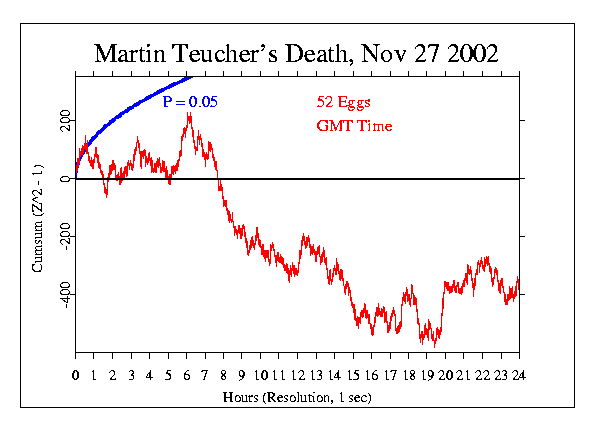Martin Teucher's Death |
|
After a program broadcast in Germany that focused on the GCP I got an email from someone there who wondered if there might be something special about November 27 2002. I told him that we generally look at the data in the context of a prediction that identifies the event, and specifies a beginning and ending time for the period where we will test for departures of the data from expectation. Without that well-defined prediction, it is very difficult to learn anything -- the data always have fluctuations, and when we have no constraint on where we look, we will find "something" and it may look interesting, but it probably will have nothing to do with our original idea. My correspondent responded that a human being died on that day who was regarded as a philosopher with remarkable perspectives. He suggested this person might have changed the world with his thinking, and that the world "must have recognized his departure."
In the purest exploratory mode, even though there was no solid information to specify the event, I decided to do a simple analysis looking at the whole GMT day. The resulting figure does show a strong trend beginning in the morning around 06:00 or 07:00, and continuing until early evening. There is no way to know whether this unusual trend has anything to do with Martin Teucher, or is in any way meaningful. I place it here as an instructive example, where it is clear that we cannot learn much from potentially interesting data unless it is examined within the essential constraints of a scientific procedure.
|
